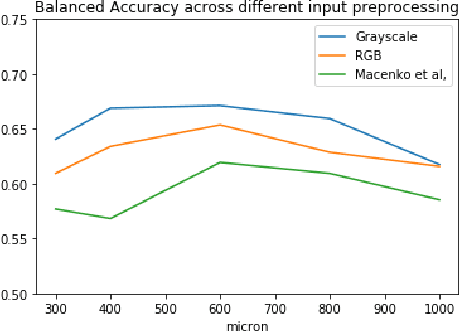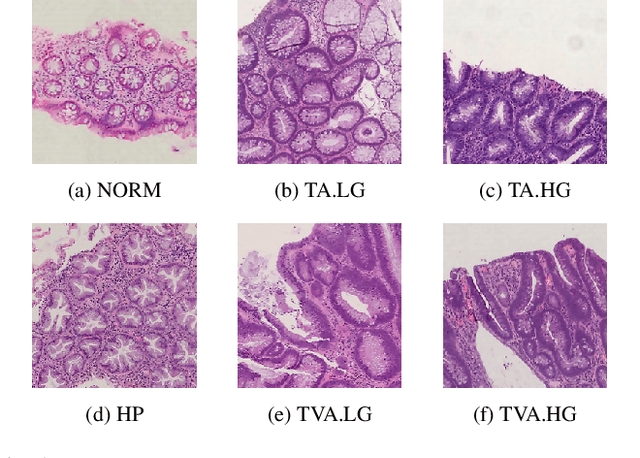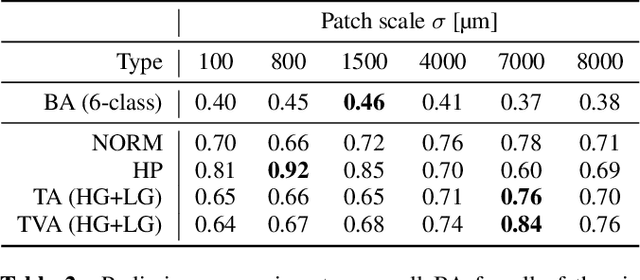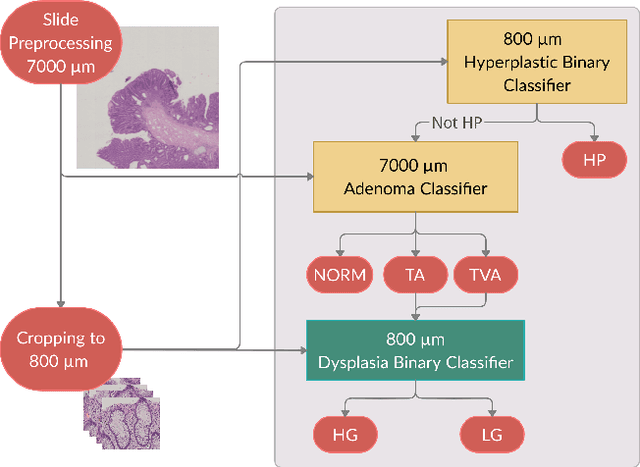Luca Bertero
Dysplasia grading of colorectal polyps through CNN analysis of WSI
Feb 10, 2021



Abstract:Colorectal cancer is a leading cause of cancer death for both men and women. For this reason, histopathological characterization of colorectal polyps is the major instrument for the pathologist in order to infer the actual risk for cancer and to guide further follow-up. Colorectal polyps diagnosis includes the evaluation of the polyp type, and more importantly, the grade of dysplasia. This latter evaluation represents a critical step for the clinical follow-up. The proposed deep learning-based classification pipeline is based on state-of-the-art convolutional neural network, trained using proper countermeasures to tackle WSI high resolution and very imbalanced dataset. The experimental results show that one can successfully classify adenomas dysplasia grade with 70% accuracy, which is in line with the pathologists' concordance.
UniToPatho, a labeled histopathological dataset for colorectal polyps classification and adenoma dysplasia grading
Feb 10, 2021



Abstract:Histopathological characterization of colorectal polyps allows to tailor patients' management and follow up with the ultimate aim of avoiding or promptly detecting an invasive carcinoma. Colorectal polyps characterization relies on the histological analysis of tissue samples to determine the polyps malignancy and dysplasia grade. Deep neural networks achieve outstanding accuracy in medical patterns recognition, however they require large sets of annotated training images. We introduce UniToPatho, an annotated dataset of 9536 hematoxylin and eosin (H&E) stained patches extracted from 292 whole-slide images, meant for training deep neural networks for colorectal polyps classification and adenomas grading. We present our dataset and provide insights on how to tackle the problem of automatic colorectal polyps characterization.
 Add to Chrome
Add to Chrome Add to Firefox
Add to Firefox Add to Edge
Add to Edge